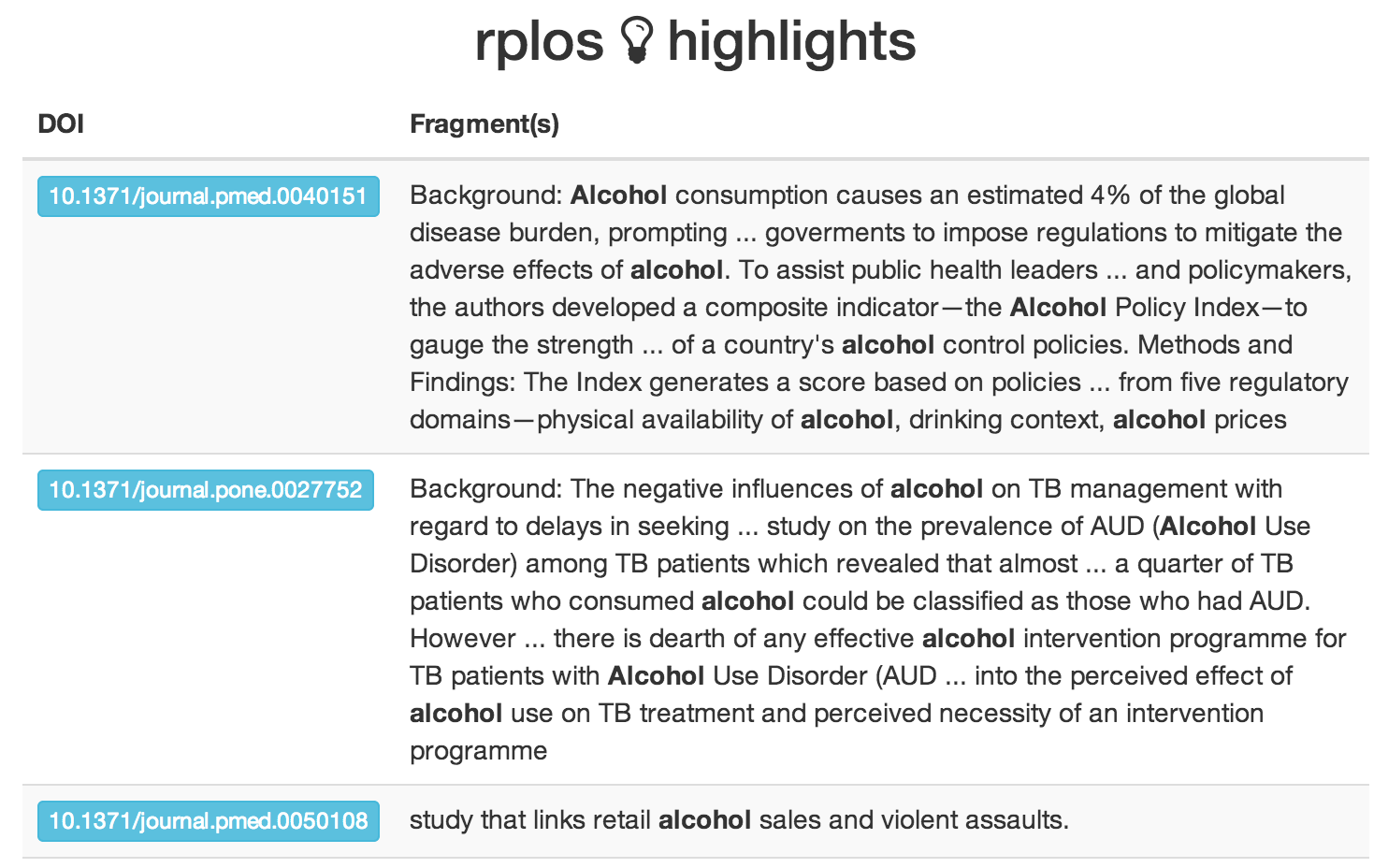December 2, 2013 From rOpenSci (https://deploy-preview-121--ropensci.netlify.app/blog/2013/12/02/rplos-highlights/). Except where otherwise noted, content on this site is licensed under the CC-BY license.
rplos is an R package to facilitate easy search and full-text retrieval from all Public Library of Science (PLOS) articles, and we have a little feature which aren’t sure if is useful or not. I don’t actually do any text-mining for my research, so perhaps text-mining folks can give some feedback.
You can quickly get a lot of results back using rplos, so perhaps it is useful to quickly browse what you got. What better tool than a browser to browse? Enter highplos and highbrow. highplos uses the Solr capabilities of the PLOS search API, and lets you get back a string with the term you searched for highlighted (by default with <em> tag for italics).
 Installation
Installation
install.packages("devtools")
library(devtools)
install_github("rplos", "ropensci")
library(rplos)
 Search PLOS articles
Search PLOS articles
out <- highplos(q = "alcohol", hl.fl = "abstract", hl.snippets = 5, rows = 10)
out[[1]]
## $abstract
## [1] "Background: <em>Alcohol</em> consumption causes an estimated 4% of the global disease burden, prompting"
## [2] " goverments to impose regulations to mitigate the adverse effects of <em>alcohol</em>. To assist public health leaders"
## [3] " and policymakers, the authors developed a composite indicator—the <em>Alcohol</em> Policy Index—to gauge the strength"
## [4] " of a country's <em>alcohol</em> control policies. Methods and Findings: The Index generates a score based on policies"
## [5] " from five regulatory domains—physical availability of <em>alcohol</em>, drinking context, <em>alcohol</em> prices"
 Preview results in your browser
Preview results in your browser
The new function highbrow (snickers quietly) automagically creates an easy to digest html page, and opens in your default browser.
highbrow(out)
Here’s a screenshot similar to what you should see after the last command

gistr map
highbrow uses the whisker package to fill in a template for a bootstrap html page to make a somewhat pleasing interface to look at your data. In addition, the DOIs are wrapped in a <a> tag with a https://doi.org/ prefix so that you can go directly to the paper if you are so inclined. Also note that the <em> tags (italicized) are replaced with <strong> tags (bold) to make the search term pop out from the screen more.
Let us know what you think.

